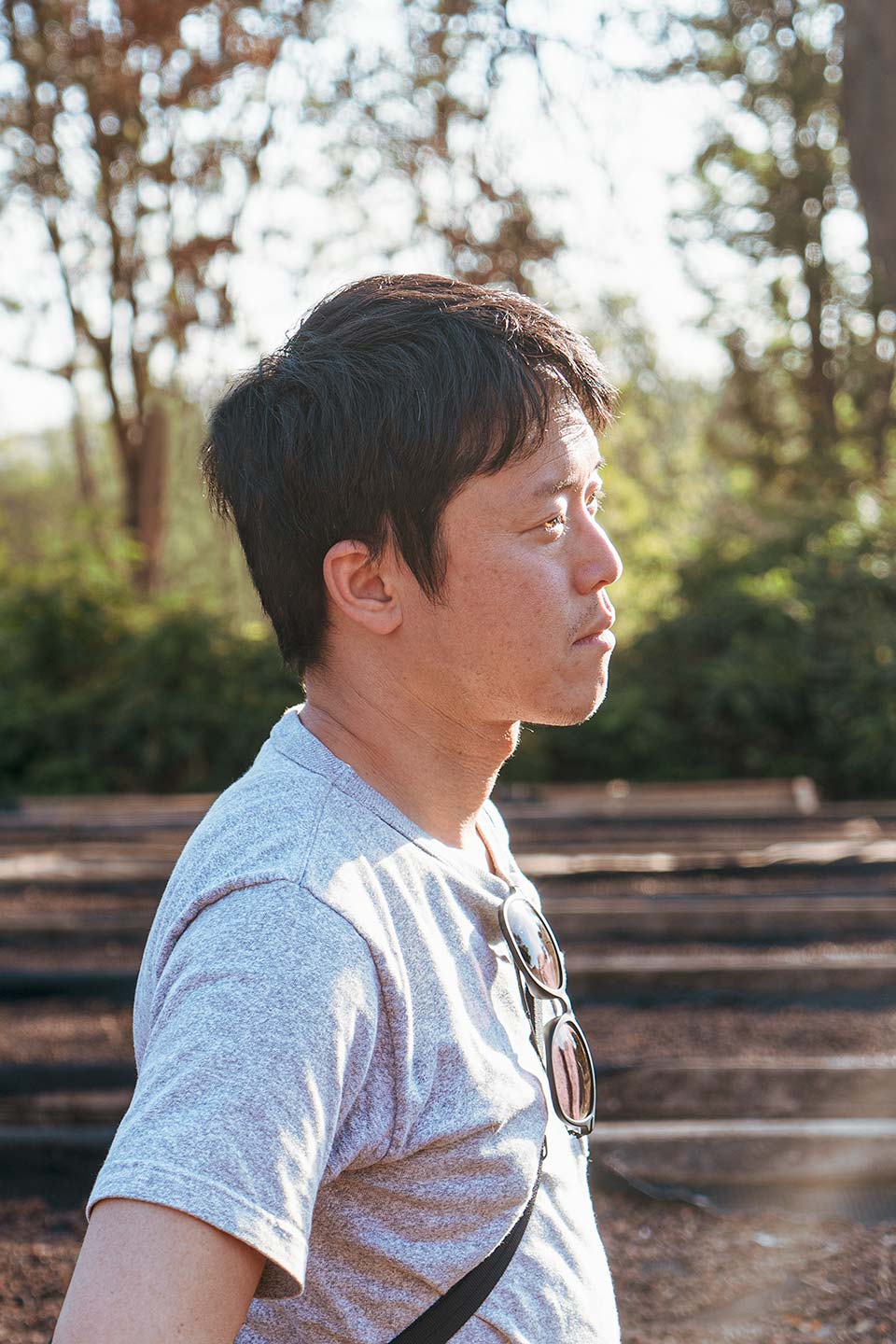
hazeru coffee
From Business to Personal: Human-to-Human Connections Drive Change
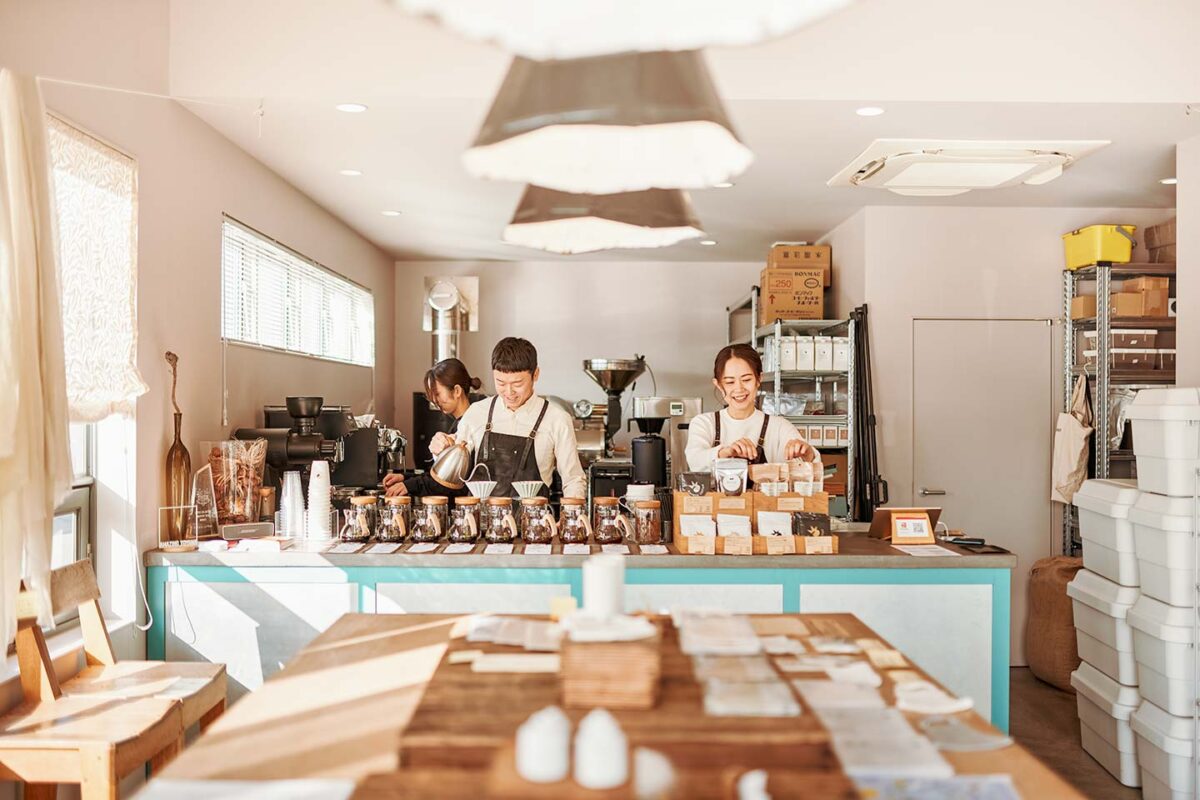
Ever since opening hazeru coffee in the central Japanese city of Toyama in 2016, Toyohisa Kubota has been offering a taste of uncharted charms of coffee to his customers. Now in its seventh year, the roastery has grown to a team of eight, building a loyal following along the way.
But deep inside, Kubota harbored a feeling of inadequacy. Whenever he talked about coffee, he would always end the conversation with a self-deprecating remark: “I’m embarrassed to say that I’ve never been to a coffee-producing country.”
But no more. After coming home from a TYPICA Lab trip to Tanzania and Kenya in 2022, Kubota has a renewed perspective on coffee.
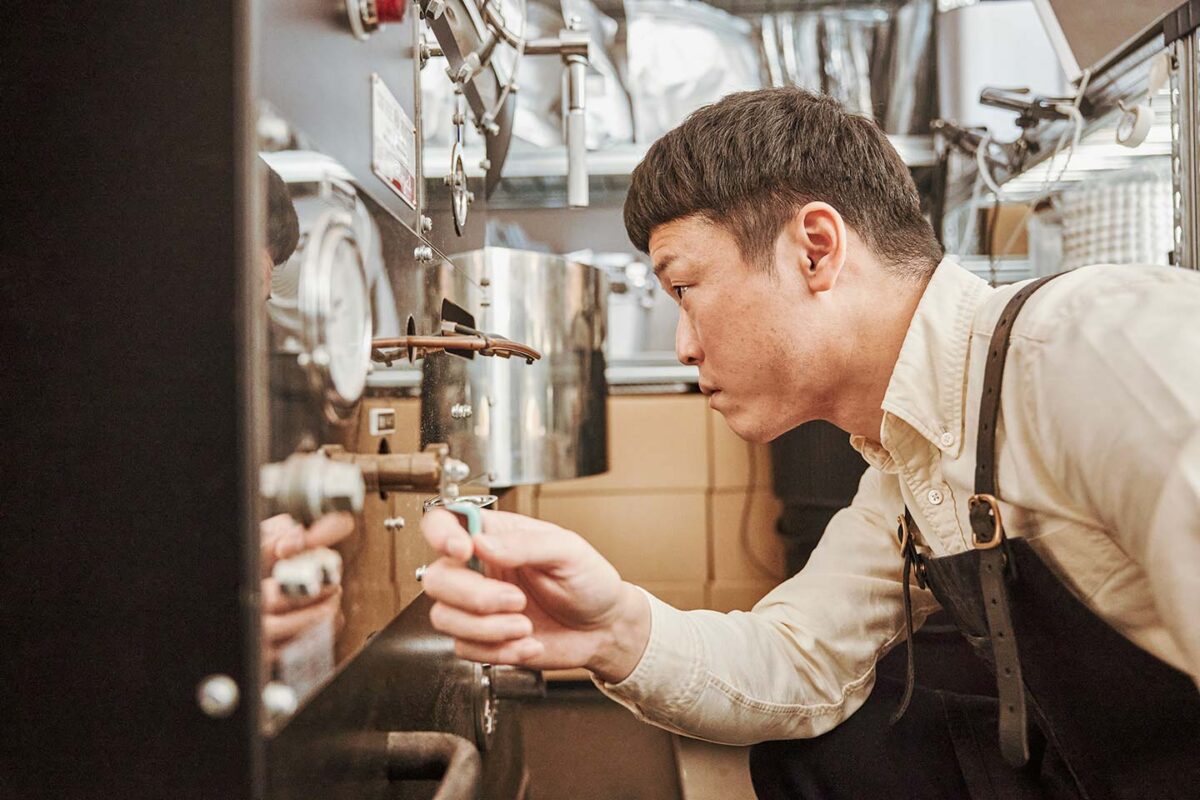
Long-over due visit
I’ve been working with coffee for two decades now, ever since I was in my early twenties. Traveling to the origin of coffee was always on my bucket list. But as time passed, the thought of actually doing it became a bit intimidating.
Owning a coffee shop means that taking a long break can be difficult. I also had reservations about spending over $2,000 on a trip to a coffee-producing country, when that money could be used to buy high-quality beans for my customers.
I knew I could only buy so much coffee even if I visited coffee producers on a farm. I wasn’t sure it would be worth the expenses to go all the way there just to buy a single 60 kilogram bag. Plus, I worried that producers might be disappointed to see my modest purchase. So I kept finding reasons to put off the trip, telling myself that I wasn’t ready to visit a coffee origin yet.
I regretted many times not having gone to visit coffee farms before starting my own shop. But the truth is, if I had really wanted to go, I could have found a way to make it happen.
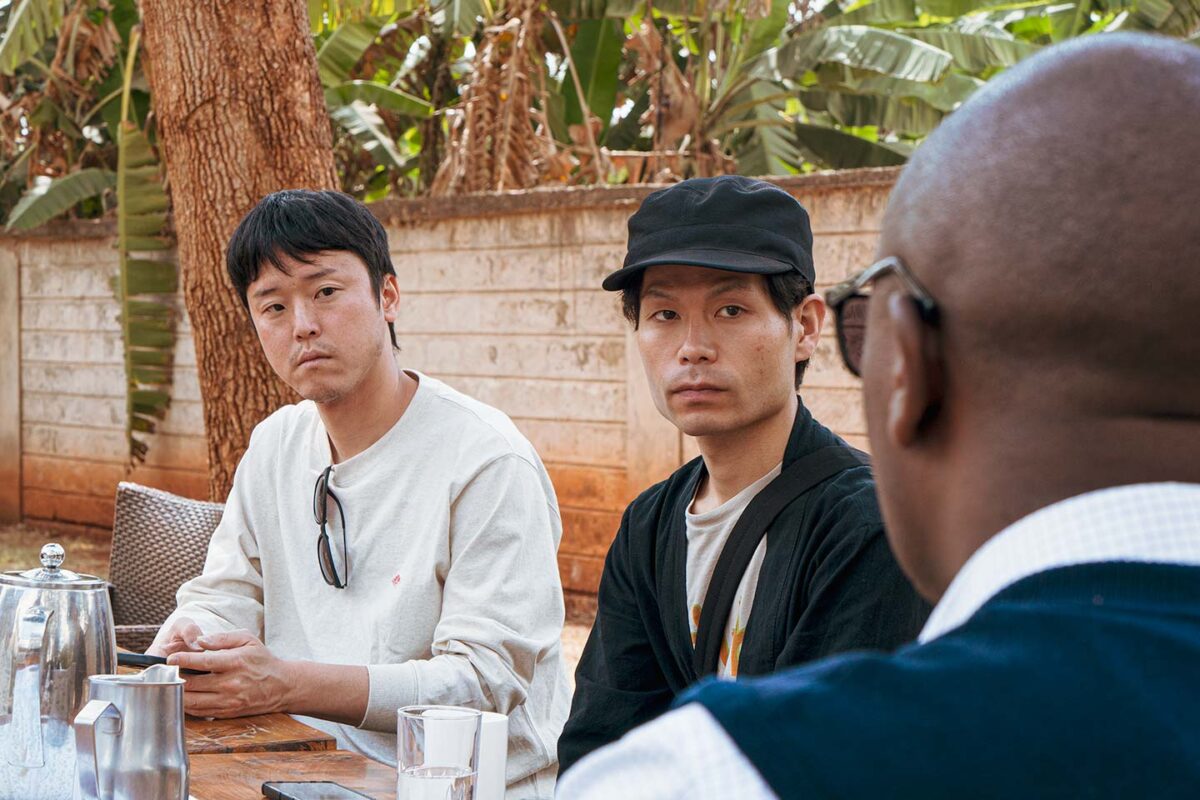
Whatever the reason, the fact was that I’d never been to a coffee farm, and no matter how passionately I talked about coffee with my customers, I knew that my lack of firsthand experience in coffee origins made my words sound somewhat hollow. For years, I always felt a twinge of insecurity. That’s why I felt so grateful and excited when I was offered the opportunity to visit a coffee origin and actually see the coffee producers I had only met online.
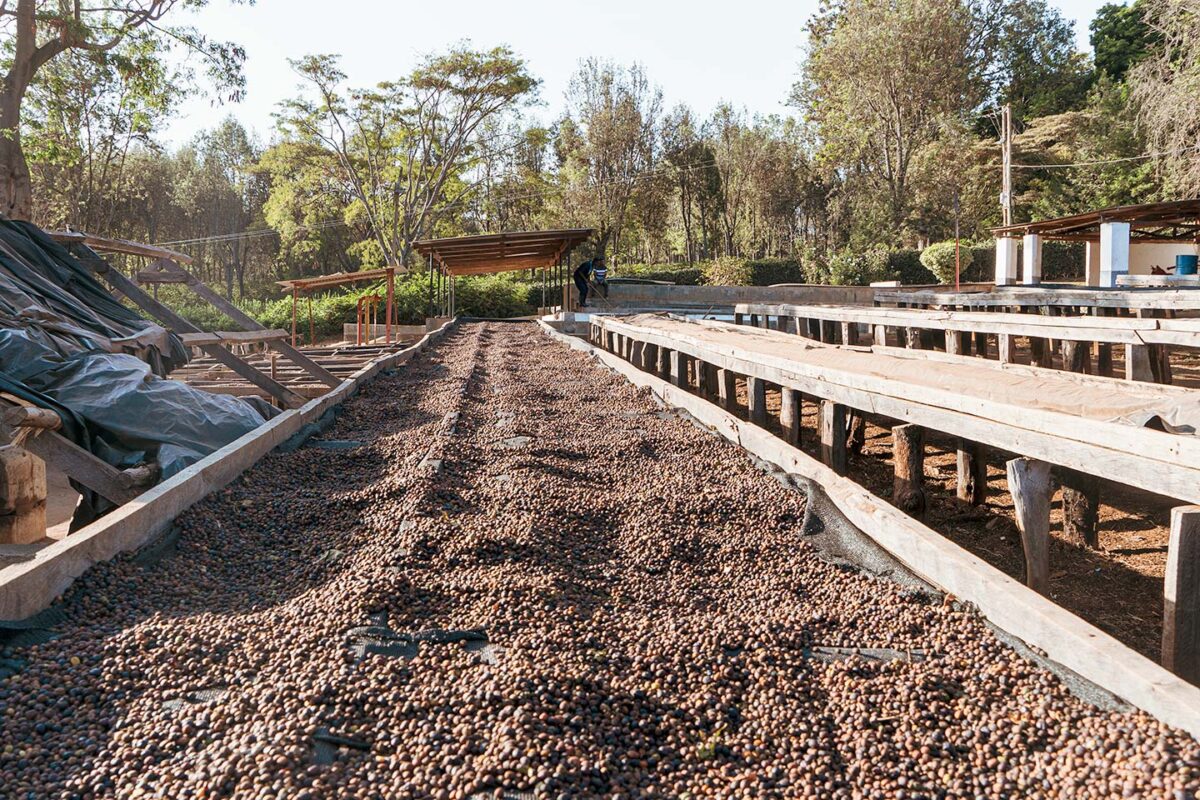
During my 10-day trip to Tanzania and Kenya, I was able to witness the realities of coffee production with my own eyes. It helped me to truly understand the intricate details involved in producing coffee. Until then, I had never fully appreciated the importance of details such as drying beans under the sun after harvest, properly storing parchment at warehouses, and how that affects the quality of the final product. I had never looked at coffee down to such fine detail.
This trip was important not just for what I learned about coffee production, but for my own sense of confidence. Now that I’ve been to an origin, I feel like a weight has been lifted off my shoulders and I can speak about coffee with more authority and conviction.
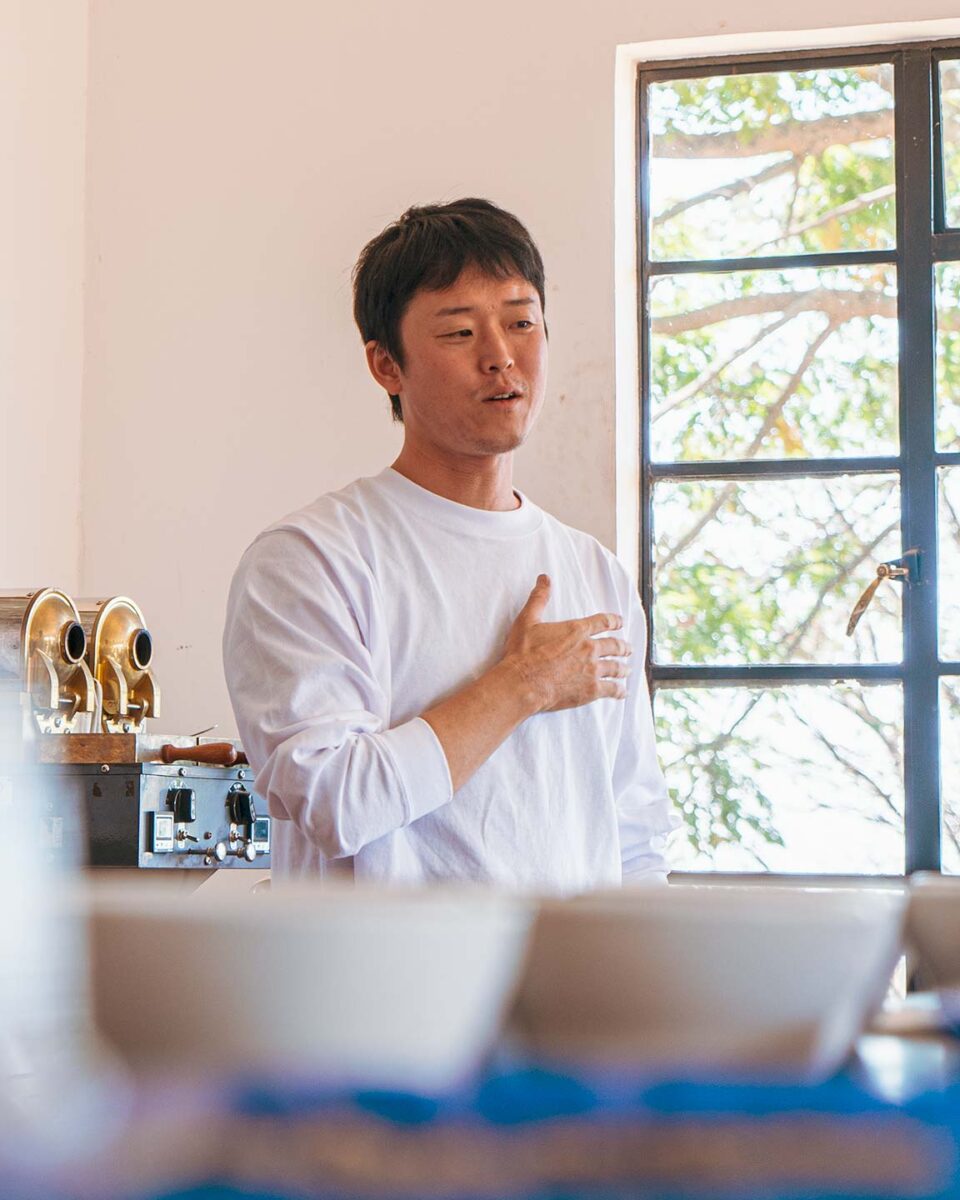
From customer to partner
I used to be conservative in my approach to sourcing beans for my shop. The only producers that I bought regularly from were the well-known ones with proven quality, like Tamiru Tadesse in Ethiopia and Carlos Iturrade from Bolivia’s Agro Takesi farm. Meanwhile, I shied away from other origins like Tanzania because I lacked the confidence to keep buying from them.
In 2022, I actually did buy coffee from Tembo Tembo, Tanzania, which I visited during this trip. But unfortunately, the beans didn’t live up to my expectations and their quality had already deteriorated by the time they arrived at my shop. I decided I wouldn’t buy the same beans again next year because it would be a risk.
However, after visiting Leon, the owner of Tembo Tembo farm, and understanding the reasons behind the disappointing quality of the beans last year, my perspective changed. He assured me that he would take the necessary steps to improve the quality, even if it would take some time. His willingness to improve made me want to put my faith in him.
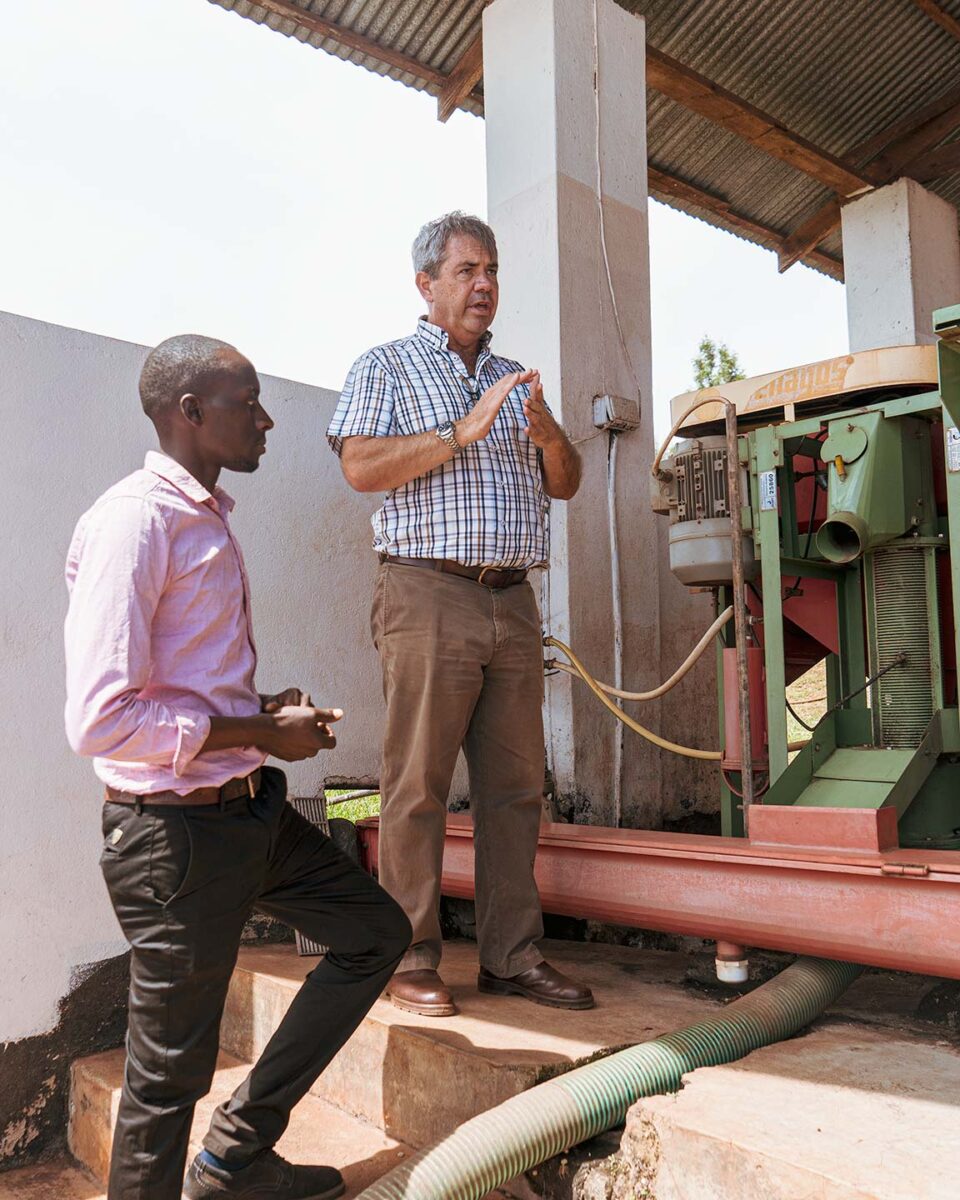
Now that I think about it, I was taking the perspective of a customer when I decided not to buy coffee because of its past quality. After speaking with Leon, I realized that I shouldn’t give up on producers if they are willing to put in the effort to improve quality.
Getting to know the producers in person made me realize that they are just like us, with their own struggles and loved ones. If my goal is to promote happiness through coffee, then it’s important to involve and support the producers who make it all possible. I realized that I needed to have a broader perspective. Now I’m eager to promote Leon’s coffee.
Naturally, my attitude toward purchase volume changed. Now that I have this personal connection with Leon, I want to buy as much coffee from him as I can, so I’m planning to use his coffee not just as a single origin but in blends and espresso. That way, I can buy even more of it. I’ve even decided to bring back indoor dining at cafes, which had been on hold because of Covid.

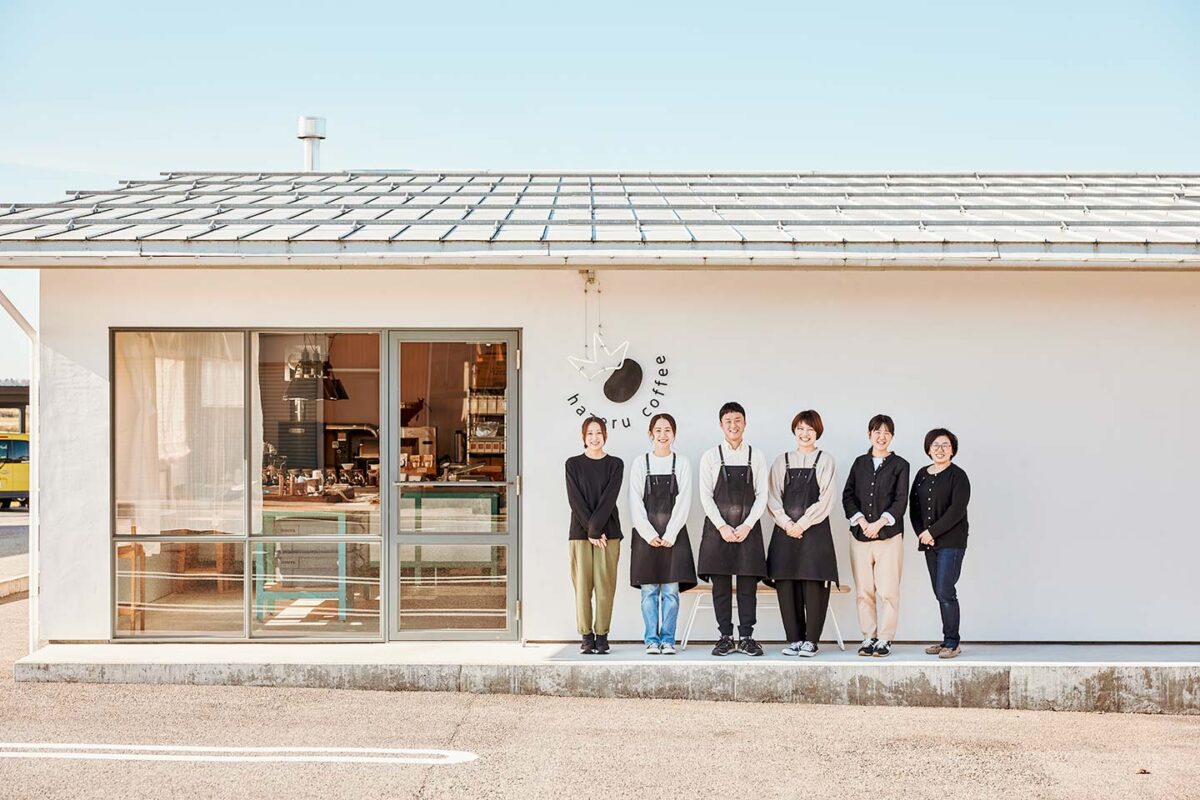
Strong motivation for change
Now, hazeru coffee employs eight people. When I incorporated the business in August 2022, I developed a business plan with a vision to create a positive cycle between producers, our team, and our customers, all through a cup of coffee.
To achieve my vision, it’s important to increase sales and continue to purchase from the same producers. I’ve discussed this with my staff, too.
At the same time, I was stuck on the question of how much I should expand my business. I wasn’t sure if I could maintain the same level of quality if I went bigger. That’s why I wasn’t so enthusiastic about wholesaling to cafes and restaurants. I also thought that running a business as an independent contractor and having complete control over everything wasn’t a bad idea, either. And I didn’t see the need to break this comfortable bubble that I had built up.
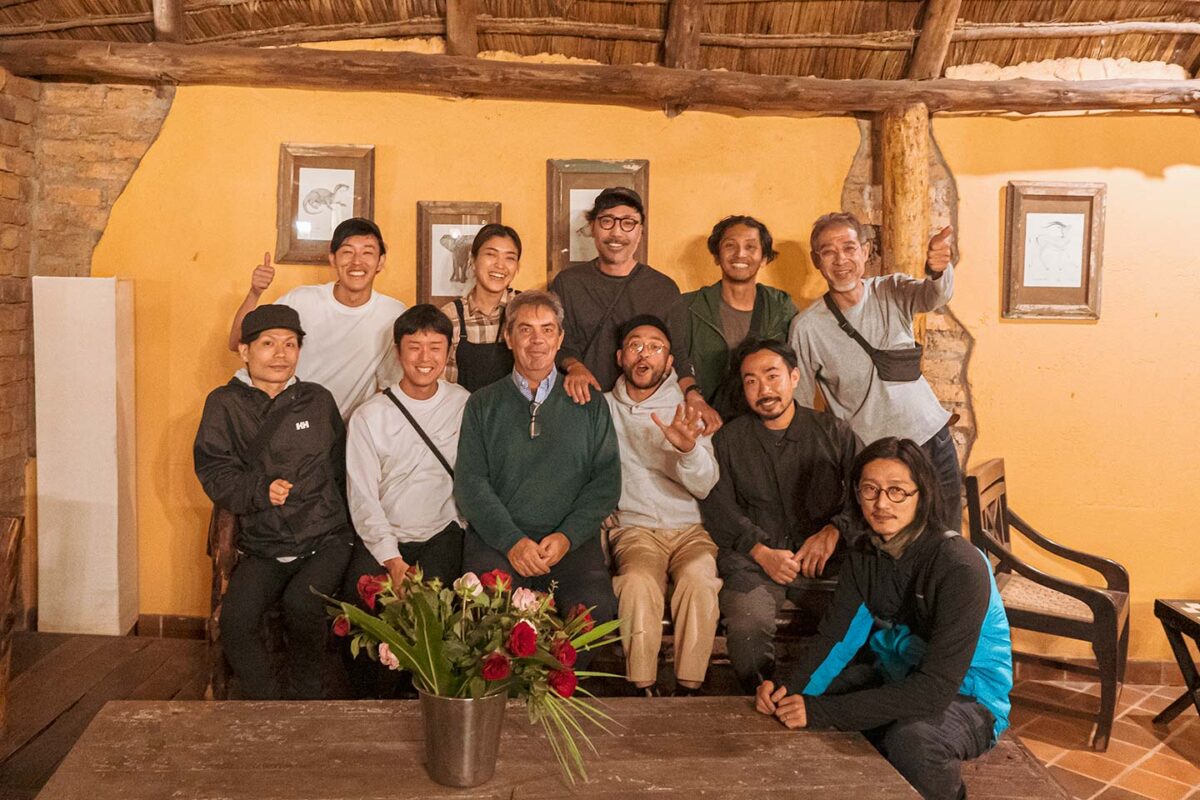
But TYPICA Lab made me rethink my approach. I’ve been buying coffee from TYPICA because I believe in their vision and want to support their mission. Then I realized I, too, should seek out people who share our vision and goals.
For instance, when it comes to wholesale, I realized that my coffee doesn’t have to be limited to my own shops. By sharing our vision and ideas with wholesale clients, we can expand our reach and impact. Recently, one of our new wholesale clients shared with me that their customers have been giving positive feedback and showing interest in our coffee.
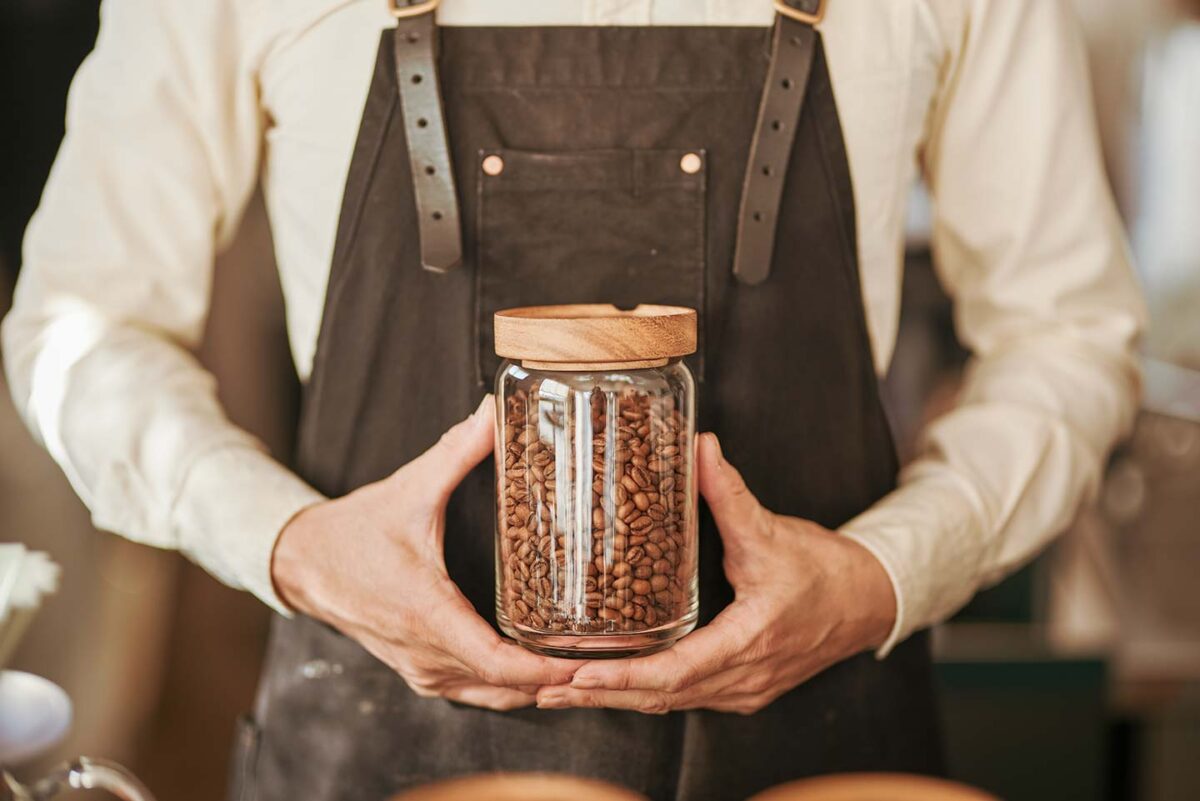
Before TYPICA Lab, I had a vision, but in hindsight, I don’t think I was so strongly motivated. Of course, I wanted to help the producers, but I didn’t have a clear plan for how to do that. Stepping out of my comfort zone takes effort and resources, which can be intimidating. I needed a compelling reason to make it worthwhile.
After this trip, I realized that in order to be able to buy more coffee, I need to change. With that shift, I’ve become more willing to confront challenges head-on instead of avoiding them.
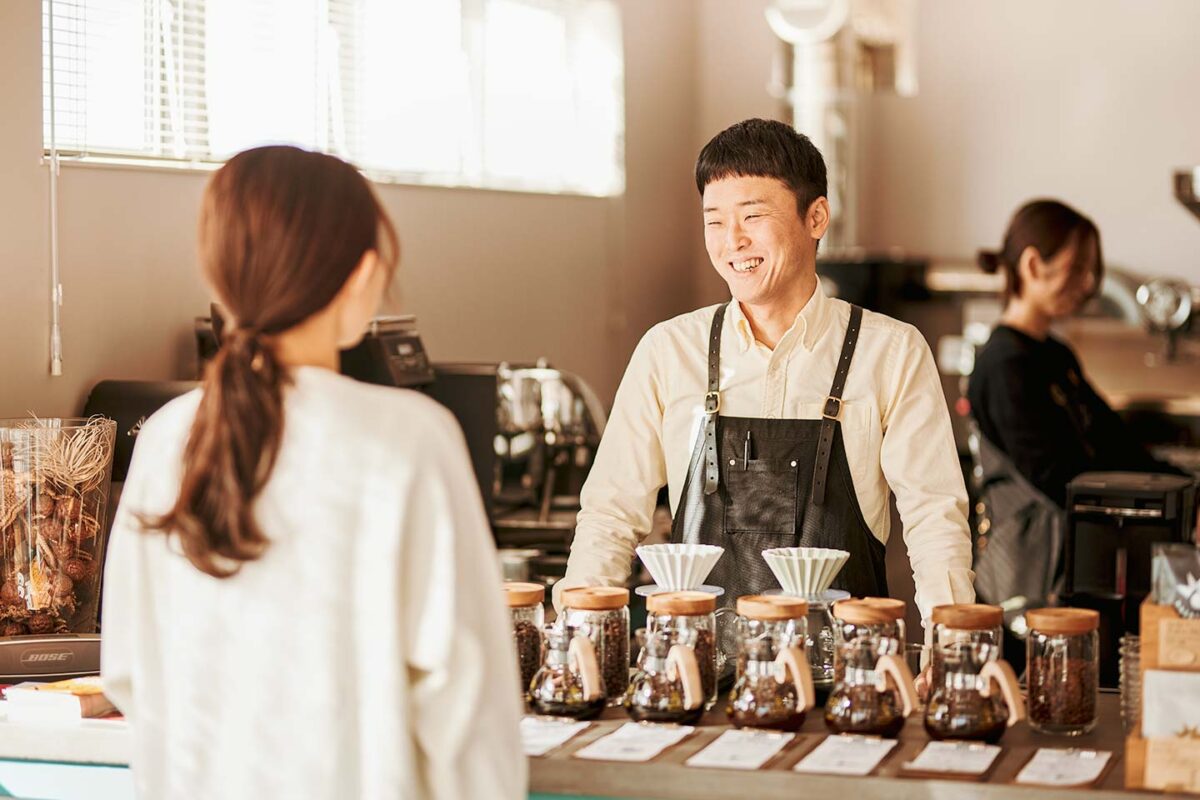
When I first hired employees, I had a strong drive to increase sales and profits so I could improve their working conditions. It motivated me to take on new challenges without hesitation and put in the hard work to bring happiness to those I care about.
One thing that hasn’t changed now and then is my desire to create a better future through human-to-human connections. But it’s not always easy to build these personal bonds with someone far away, like coffee producers. I think meeting them in person and getting to know them was what shifted the way I approach my business.
hazeru coffee
hazeru coffee
SOGAWA BASE
- [Open]
- 10:00-19:00